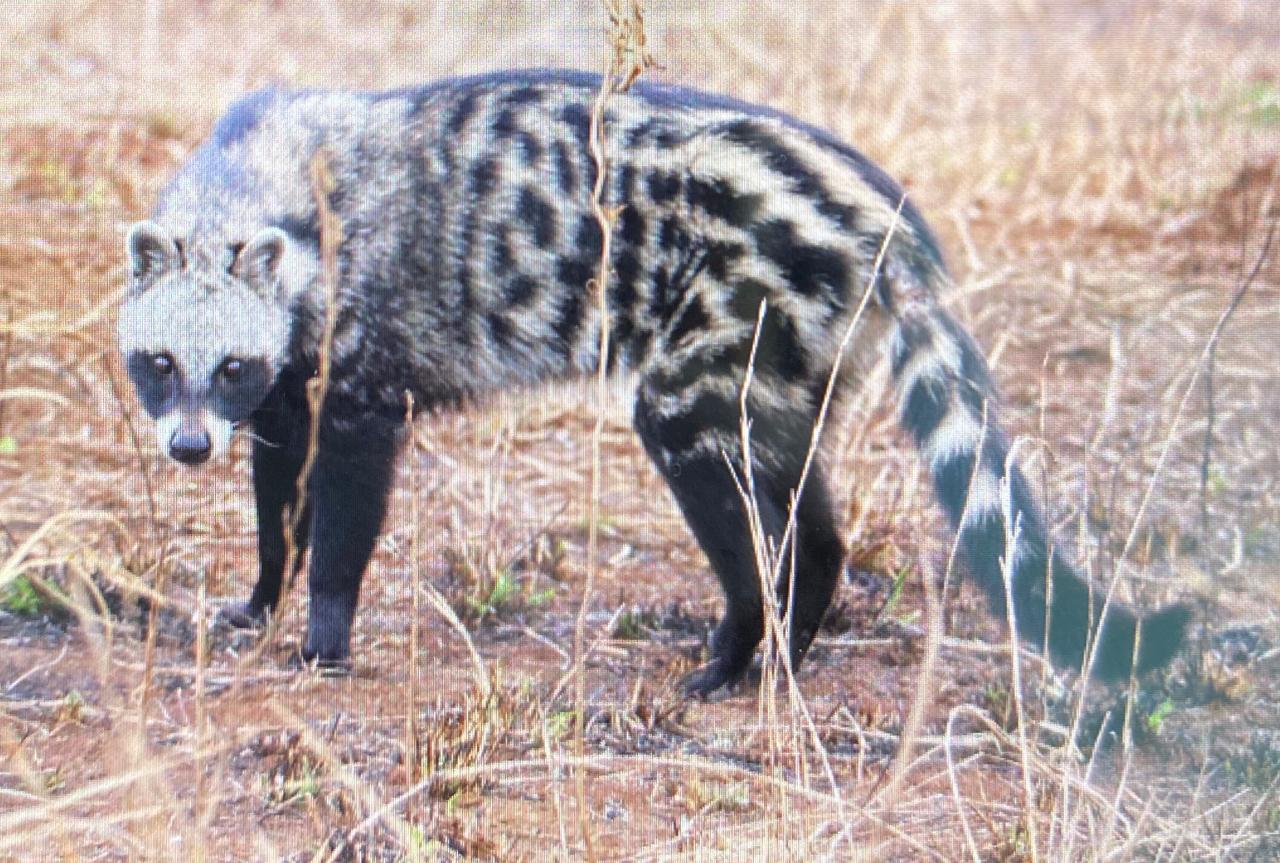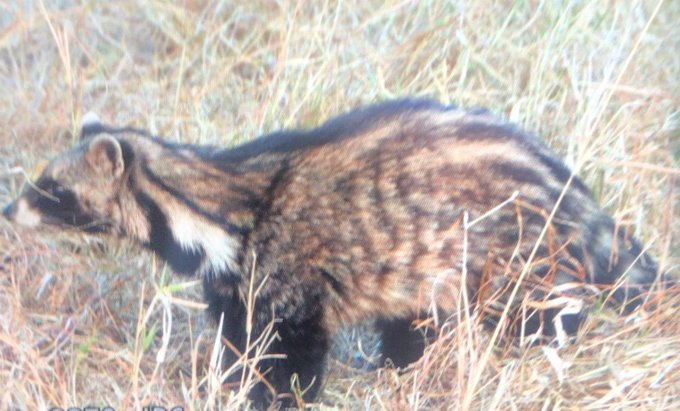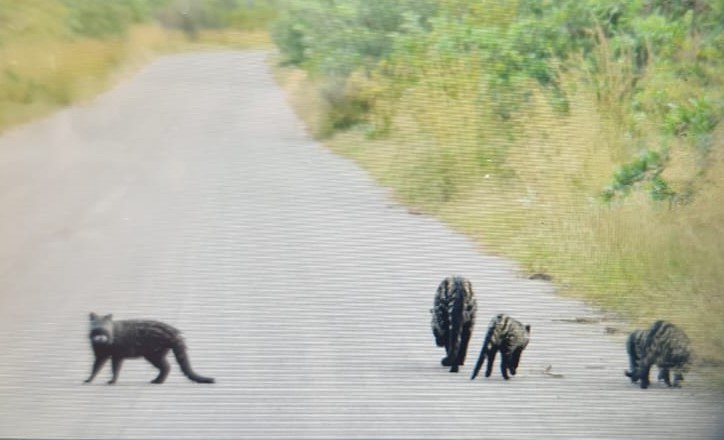Page 4 of 5
Re: African Civet
Posted: Tue Jun 23, 2020 11:27 am
by Richprins
Ja, me too!


Re: African Civet
Posted: Tue Jun 23, 2020 1:51 pm
by Lisbeth
Most likely a change that Twitter has made to get you to visit the site

Re: African Civet
Posted: Wed Jul 15, 2020 10:25 am
by Richprins
Re: African Civet
Posted: Fri Jul 24, 2020 10:49 am
by Richprins

Kruger Sightings
@LatestKruger
4:40 pm
1 civet on the move
S28, 14.6km N of H4-2 S entrance
Near Crocodile Bridge
5/5
Tinged by S&S
5:12 PM · Jul 23, 2020
Re: African Civet
Posted: Sun Aug 09, 2020 10:37 am
by Richprins
Re: African Civet
Posted: Thu Aug 19, 2021 10:20 am
by Richprins

Kruger Sightings
@LatestKruger
5:30pm
1 African Civet on the move
"next to the road"
S4, 500m N of S1
Near Skukuza
5/5
Tinged by Yoni Ferguson
Image
5:38 PM · Aug 18, 2021
Re: African Civet
Posted: Fri Jan 28, 2022 11:58 am
by Lisbeth
It’s not a cat, it’s the African civet | Candid Animal Cam
by Romina Castagnino on 27 January 2022
https://youtu.be/ZyRsD8FLygA
The African civet (Civettictis civetta) is a medium-sized animal native to sub-Saharan Africa, where it lives in forests and savannas. Individual civets are recognized by the white stripes on their neck and the details of their dark face masks, which resemble those of a raccoon. The varied colors and shapes of the civet’s coat provide excellent camouflage when hiding. These nocturnal and solitary animals are omnivores; they eat various food such as fruit, insects, amphibians, reptiles, birds and rodents, and they occasionally eat the young of large mammals. Civets pounce on their prey and shake it to kill it.
The African civet is famous for the secretions from its perianal gland, known as ‘civetone,’ which is used as an ingredient in perfume production. For centuries, people have collected musk from these animals and diluted it to make a pleasant fragrance. However, African civets are illegally kept in cages to collect and sell the musk to the perfume industry in some areas. The trade for civetone has decreased remarkably, but it is still a significant threat to these animals in some locations. Watch the video to learn more about this species!
Special thanks to research biologist Pearson McGovern from the African Chelonian Institute. You can follow him on Instagram at @pearsmcg.
Re: African Civet
Posted: Wed Mar 15, 2023 11:27 am
by Richprins

Kruger Sightings
@LatestKruger
8:25am
4 plus African Civet running
"Mom and civet cubs running in the road."
S1, 5km W of the Nyamundwa Dam
Near Phabeni Gate
5/5
Tinged by Linda
2:51 PM · Mar 14, 2023
Re: African Civet
Posted: Wed Mar 15, 2023 12:57 pm
by Rooicat
Taken in November 2021 on the S28. A pair of civet fighting in broad daylight - whether it was territory or mating I don’t know…
Re: African Civet
Posted: Wed Mar 15, 2023 1:22 pm
by Lisbeth




